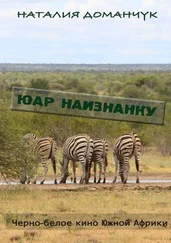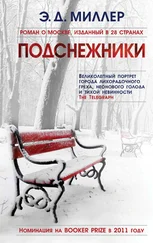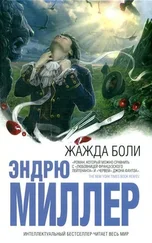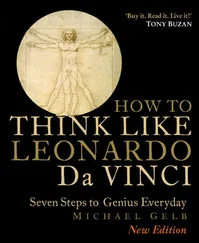I creep sometimes to the edge of it, just to see. To observe. To experience.
It is erotic, of course. Titillating. The sight of those bodies and blushed, flushed faces. The red lips and the tight tops. The tiny thin hips and the arms and hands and wrists and thighs all intertwined. The thumping heads and thumping drum.
But it is hard too, this thing. Those jaws, they grind. Always grind. Those eyes, many are beginning to reflect rather than absorb, shining like metal or plastic caught in the light. They have a lab now. (Who are they, exactly? I don’t know. When I say ‘they’, I refer, in my own mind, to the decision-making and operational unit. I refer to Sthembiso. He of the ideas. He of the action.) I saw them once ferrying scientific-looking boxes into it. Test tubes and some liquid. What do they make in the lab? It could be anything. It’s probably everything. Some of it is hard. Trance hard. Dance hard. All-night hard.
I think of my father. His narcotic grin and those insensible, inane, supercharged Monday-morning eyes. After so much change, so much difference, we’ve ended up, he and I, in the same place.
Well, almost. There are differences, of course. Babies are everywhere. Parenthood and partyhood have merged. Mothers cradle children while they dance, fondle boyfriends and feed, push prams, dance some more. We were also always at least partially dressed. These people, my children, are often almost completely naked.
Who are the parents? Who are the kids? Who is in control? Who sets the rules and who is forced to toe the line? Sthembiso is at the head of it, but other than that it’s impossible to tell. From the long distance of my age all I see is a swarming, pulsating mass of hyper-sexualised children.
We’re into the fourth generation now and I haven’t yet seen any of the signs of inbreeding. Thus, at some basic level our attempt to secure genetic diversity seems to have worked. But, to be honest, I can’t see how our small pool has created this many of them over such a short period of time. Whenever I try to add them up (I count the heads, quietly, some days) I come out with a number that exceeds the realms of possibility. There are simply too many.
I am forced, as a result, to think of Madala.
In my rare, fully rational moments I see that my children are not what I am.
I reach out. I try to touch them. But I fail. I don’t have the language. I don’t have the proximity. My fingers slide off a metallic, alien surface.
Somewhere back there Sthembiso grew quiet. He stopped asking questions. For years I took this to be the sign of a mind and a personality breaking free from its parental moorings, and it warmed me. I was watching, I believed, the maturing. Our leader. So I detached. I took the steps back, and then to the left, then the right, to accommodate a painful but necessary process. It was only after the pigs that I forced myself to look at the signs. To really look.
He could fix things. Bodies and broken bones were repaired.
Illnesses were addressed.
He could erect a cell tower.
He could program computers and build software. He could network machines across time and space and enormous, baffling distances.
He could pray.
He could lecture and speak and chant and bring people to their feet to sing and bow.
He could preach.
And he did.
In moments of vanity I tell myself I could have taken control and steered the boat in a different direction. I could have made sure that that child – all the children, in fact – remained somewhere close to my wing.
Of course this is deluded. I know that, when I think about it hard enough. Control is an advertising concept.
Sthembiso and his lieutenants initiated the great moving. All Javas’s giants, each previously unique and apart, now watch over the party area in front of the stairs leading up to the expo. The church. This is now their role. It is not insignificant. They are not aesthetic props. They are not pissed upon (literally or figuratively) or mistreated. They are venerated. Obscenely so.
Sthembiso’s art is not new. I know that. He is the preacher. The preacher who smiles with a level voice and complete freedom. A preacher sitting ready, decisions primed in the palms of his rough, impossibly experienced hands.
He leads his prayers and his lectures at the giants’ feet. I have listened in on many of these. I have watched the lips of the youngsters flapping in time with his words, I have seen them recite – from memory – his sayings.
‘Brothers and sisters,’ he says. ‘We are but few, but we have been blessed with the divine, with the revelations of science and love that will lead us into the future in a manner our forefathers could never have dreamed of. Brothers and sisters…’ He pauses, essence of Obama and Luther King and Clinton and Mandela and Tutu and Hitler on his lips, stares them down, deep into their little pubescent eyes. They lock into him and wait, and wait, until they are leaning into his eyes and his words. He takes them on.
‘Brothers. Sisters. Now that we are moving. Now that we have been blessed with the gifts of science and the land. Now that we are truly on the move, it behoves us to look back and to see with the clarity our Lord has given us the mistakes of our fathers.
‘Not to accuse.
‘Not to denigrate.
‘But to learn. To look back and learn. And when we do cast ourselves in that earlier direction, we will see – it is quite obvious now that we know how to look and what we are looking at – that our fathers forsook the most basic human skill of all. That they forsook it almost completely. They forgot how to dream. How to look into the jungle of the self, how to read the patterns and the words. And…’ Pause. Eyes. Smiles. Eager nodding. ‘And well we might ask, how did they manage to forget – forsake even – this, the most valuable ability the human has? How did they come to forget and abandon this, the root of all things? How did they lose touch with the skill that orients our minds, that provides the very gearing for what we do and how we do it? How did they forget how to dream?’
Full eyes. Wet lips. Leaning forward. All of fifteen, thirteen, eleven, ten, eight years old. Prams and babies and ecstatic yells and science and lectures and preaching. Trance.
They are completely in this thing and he is pulling them forward and of course they follow.
Of course they follow.
CHAPTER 60
Seeds need to spread
Let me not misrepresent these kids, these entities – whatever they are.
For the sake of historical accuracy, and my own mental balance, let me try to paint the picture as it is, with accents applied fairly over space and time.
The parties used to be very frequent, but they have dropped off to once every three or four weeks. The preaching occurs daily, but has not – yet – attained the level of stupid superstition. They seem to pray quickly in the mornings, and then, from what I can gather, Thursday, holy day, when not a trance day, involves rest and a lot of sex. They wander around naked and fuck, in other words, on a Thursday.
I need not go into too much detail concerning the sight of roaming teenage hard-ons and moist, ready vaginas. They are, obviously, impossible to ignore. They are also more than a little bit scary to me, the cocks vigorous and purple, throbbing and straining and leading their owners into… well, whatever. Thus far (thanks to the gods, whatever gods, for small mercies) the actual sex has not been something for upfront public display. Rather, one catches repeat glimpses of buttocks and thighs, arms and hands, accompanied always by a cacophony of small sighs and aroused child grunts.
On Thursdays I try to stay indoors.
But let me be fair. It’s not as if they’re running some kind of perpetual kiddie orgy. The nudity and the copulation and the day of rest have been clearly delineated. They are not random acts – they are planned and carried out according to an agreed set of rules. I won’t claim to know the rules, but I do understand that sex is a fundamentally different thing for them than it was for us, who lived in a world full of people. These kids need to fuck – they need to fuck a lot. Seeds need to spread. We realised the necessity when we created the baby farm in its first incarnation, and now the idea has become thoughtless belief – action – as ideas must if they are going to live.
Читать дальше












